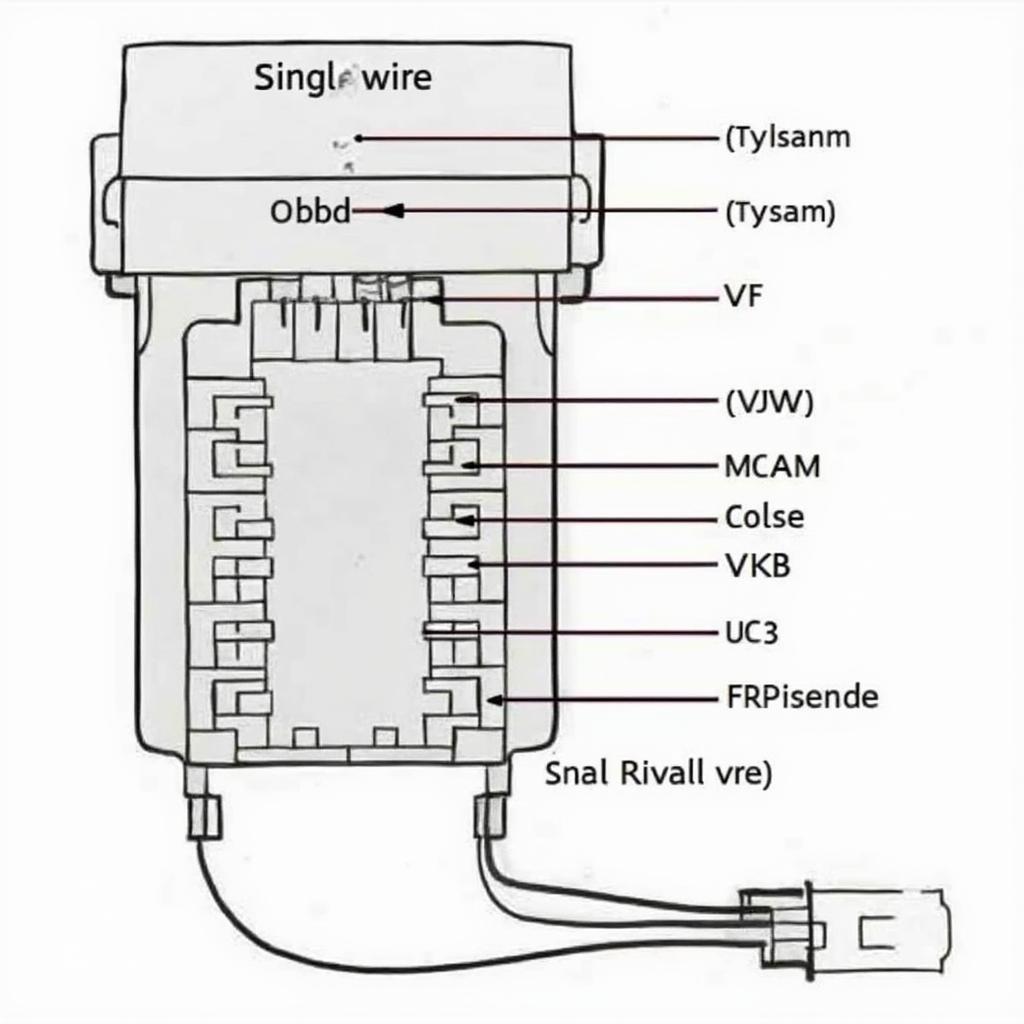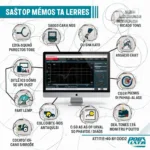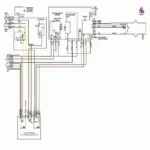Understanding the different communication protocols used by OBD2 scanners is crucial for effective vehicle diagnostics. This article dives deep into the nuances of two specific protocols: J1850 VPW and J1979, providing a comprehensive comparison to help you understand their strengths, weaknesses, and applications. We’ll explore how these protocols function, the vehicle types they’re typically found in, and the key differences that set them apart.
Decoding J1850 VPW: Variable Pulse Width Modulation
J1850 VPW (Variable Pulse Width Modulation) is a single-wire communication protocol primarily used in Ford and General Motors vehicles. It utilizes a variable pulse width signal to transmit data between the OBD2 scanner and the vehicle’s control modules. This protocol operates at a speed of 10.4 kilobits per second, offering a decent balance between speed and simplicity. One of the benefits of J1850 VPW is its relative simplicity, requiring only a single wire for communication, thus reducing complexity in the wiring harness.
One limitation of J1850 VPW is its limited bandwidth compared to newer protocols. This can result in slightly slower data transfer rates, particularly when accessing large amounts of data from the vehicle’s control modules.
Exploring J1939: The Heavy-Duty Standard
J1939 is a higher-speed, multi-plexed communication protocol specifically designed for heavy-duty vehicles like trucks, buses, and agricultural equipment. Unlike J1850 VPW, J1939 utilizes two wires for communication and operates at a significantly faster speed of 250 kilobits per second. This higher bandwidth allows for the transmission of more complex data and supports a wider range of diagnostic functionalities. J1939’s robust design also contributes to its reliability in demanding environments often encountered by heavy-duty vehicles.
Because J1939 is designed for heavy-duty applications, it may not be compatible with standard OBD2 scanners designed for passenger vehicles. Specialized adapters and software are often required to interface with vehicles using the J1939 protocol.
J1850 VPW vs. J1979: Key Differences and Choosing the Right Protocol
The primary difference between J1850 VPW and J1939 lies in their intended application and resulting performance characteristics. J1850 VPW is geared toward lighter-duty passenger vehicles, while J1939 caters to the needs of heavy-duty vehicles. This difference is reflected in their data transfer speeds, wiring complexity, and the types of vehicles they are commonly found in.
Choosing the correct protocol depends entirely on the type of vehicle you are working with. For most passenger cars and light trucks, J1850 VPW (or other standard OBD2 protocols) will suffice. However, for heavy-duty vehicles, a J1939 compatible scanner and adapter are essential.
Which protocol is faster, J1850 VPW or J1939?
J1939 is significantly faster than J1850 VPW.
What types of vehicles use J1850 VPW?
Primarily Ford and General Motors vehicles.
What types of vehicles use J1939?
Heavy-duty vehicles like trucks, buses, and agricultural equipment.
Conclusion: Navigating the World of OBD2 Protocols
Understanding the differences between OBD2 protocols like J1850 VPW and J1979 is essential for anyone involved in vehicle diagnostics. By recognizing the unique characteristics of each protocol, you can select the right tools and techniques to effectively troubleshoot and maintain vehicles. OBDFree provides a wealth of resources to further your understanding of obd2 protocol j1850 vpw vs j1979 and other essential automotive diagnostic information.
FAQ
- Is J1850 VPW still used in modern vehicles?
- Can I use a J1939 scanner on a car?
- What are some common issues diagnosed using these protocols?
- Where can I find J1939 compatible OBD2 scanners?
- What other OBD2 protocols are there?
- Are there adapters to connect a standard OBD2 scanner to a J1939 vehicle?
- How can I learn more about OBD2 diagnostics?
You might also be interested in our other articles on OBD2 protocols, such as CAN and ISO9141. Check out our resources on choosing the right OBD2 scanner and troubleshooting common car problems.
Need help? Contact us via WhatsApp: +1(641)206-8880, Email: [email protected]. We have a 24/7 customer support team ready to assist you.


